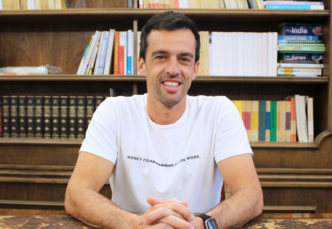Startups working on climate tech often face a difficult funding gap after their initial rounds. They’ve outgrown early-stage venture capital but still require substantial investment—especially for hardware-heavy businesses that need large-scale infrastructure. That’s where Ara Partners sees a unique opportunity.
The private equity firm recently closed an $800 million infrastructure fund dedicated to reducing carbon emissions in hard-to-decarbonize sectors such as heavy industry, chemicals, and manufacturing. The fund surpasses its original $500 million target, reflecting growing investor interest in sustainable infrastructure.
While many infrastructure funds have traditionally avoided the risk associated with climate tech, Ara Partners is leaning in. “We saw this massive void in the capital stack,” a representative from the firm told TechCrunch. The firm attracted strong backing from global institutional investors, including pension funds, endowments, sovereign wealth funds, foundations, and insurance companies.
These organizations recognize the economic and environmental urgency of backing low-carbon development, especially as clean technologies like biofuels and waste-to-energy have become increasingly cost-effective.
Decarbonization Strategy Built on Existing Infrastructure
Ara’s new fund has already made three investments, including one in an Ireland-based organic waste recycling company and another in a biofuels terminal developer. The firm’s strategy centers on repurposing existing infrastructure for low-carbon applications, an approach that minimizes development time and leverages known assets.
Rather than building entirely from scratch, Ara focuses on upgrading or converting industrial systems to support decarbonized processes, such as converting waste into bioenergy or retrofitting chemical plants to run on renewable inputs.
The firm has a track record in this space. One of its earlier investments through a separate private equity fund was in Divert, a U.S.-based company that manages food waste. Divert takes unsellable yet edible food and donates it. Inedible food is converted into biogas, which can be used on-site for electricity and heat or sold as renewable fuel.
This model not only prevents methane emissions from landfills but also helps companies reduce disposal costs, comply with waste regulations, and improve ESG (Environmental, Social, and Governance) performance. Ara’s ongoing support for companies like Divert demonstrates its confidence in the economics of climate-friendly solutions.
Timing Is Key: Policy Uncertainty, Economic Clarity
Ara’s fund comes at a time when political signals around decarbonization in the U.S. are mixed. Policy debates remain active, but the economics of green technology are becoming increasingly persuasive.
Over the last several years, many low-carbon and zero-carbon technologies have dropped in cost, becoming price competitive with traditional fossil fuel-based systems. Innovations in materials, manufacturing efficiency, and energy recovery have enabled clean tech companies to offer commercially viable alternatives.
This cost competitiveness, combined with rising regulatory pressure and consumer demand for sustainability, makes the case for industrial decarbonization stronger than ever.
Ara Partners confirmed that a fourth investment under the fund will be announced soon. While no details have been shared, the firm emphasized its continued focus on scalable, infrastructure-backed solutions that address the climate crisis from the ground up.
By bridging the gap between venture capital and traditional infrastructure finance, Ara is positioning itself as a key player in the transition to a low-carbon industrial economy. Its fund could offer a blueprint for other firms exploring how to support climate tech startups at scale.
As global attention increasingly turns to industrial emissions, Ara’s model—using infrastructure capital to fund sustainable innovation—may prove to be both timely and transformative.













